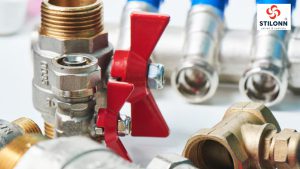TC End 2 Pc Ball Valves: High Flow Applications and Easy Maintenance
Ball valves are widely used in various industrial applications due to their superior flow control capabilities and reliability. One popular type of ball valve is the TC end 2 pc ball valve, designed for high-flow applications. This type of valve features a two-piece body construction and a tri-clamp (TC) end connection, making it easy to install and maintain.
TC End 2 Pc Ball Valves are commonly used in industries such as food and beverage, pharmaceuticals, and chemical processing, where high flow rates are required. These valves can handle high-pressure and high-temperature applications, making them suitable for various industrial processes.
Applications of TC End 2 Pc Ball Valves
Food and Beverage Industry:The food and beverage industry widely uses TC end 2 pc ball valves due to their hygienic design and high flow capacity in processing, mixing, and dispensing applications.
Pharmaceutical Industry: Various applications in the pharmaceutical industry, such as drug manufacturing and sterile processing, widely use these ball valves.
Chemical Processing Industry: TC End 2 pc ball valve are suitable for chemical processing due to their resistance to corrosion and chemical damage.
Water Treatment Industry: The water treatment industry commonly uses these ball valve for water distribution, filtration, and purification applications.
Oil and Gas Industry: The oil and gas industry uses TC end 2 pc ball valve for a variety of applications, including pipeline transportation, wellhead control, and refining processes.
Maintenance of TC End 2 Pc Ball Valves
Proper maintenance is essential for ensuring the reliable operation of TC End 2 Pc Ball Valves. Regular inspections and cleaning can prevent corrosion and ensure the valve functions correctly. Here are some maintenance tips for these ball valves:
Inspect the Valve Regularly: Regular inspections can help detect any damage or wear and tear in the valve. Look for signs of corrosion, leaks, or cracks in the valve body or seal. If you notice any signs of damage, replace the valve immediately.
Clean the Valve: Keeping the valve clean can help prevent corrosion and ensure that the valve is functioning correctly. Use mild detergent and warm water to clean the valve. Avoid using abrasive cleaners or harsh chemicals that can damage the valve.
Lubricate the Valve: Proper lubrication can help extend the valve’s life and prevent wear and tear. Use a lubricant compatible with the valve material and follow the manufacturer’s recommendations for lubrication frequency.
Replace Worn or Damaged Parts: If you notice any worn or damaged parts, replace them immediately. This includes the valve seats, seals, and gaskets.




